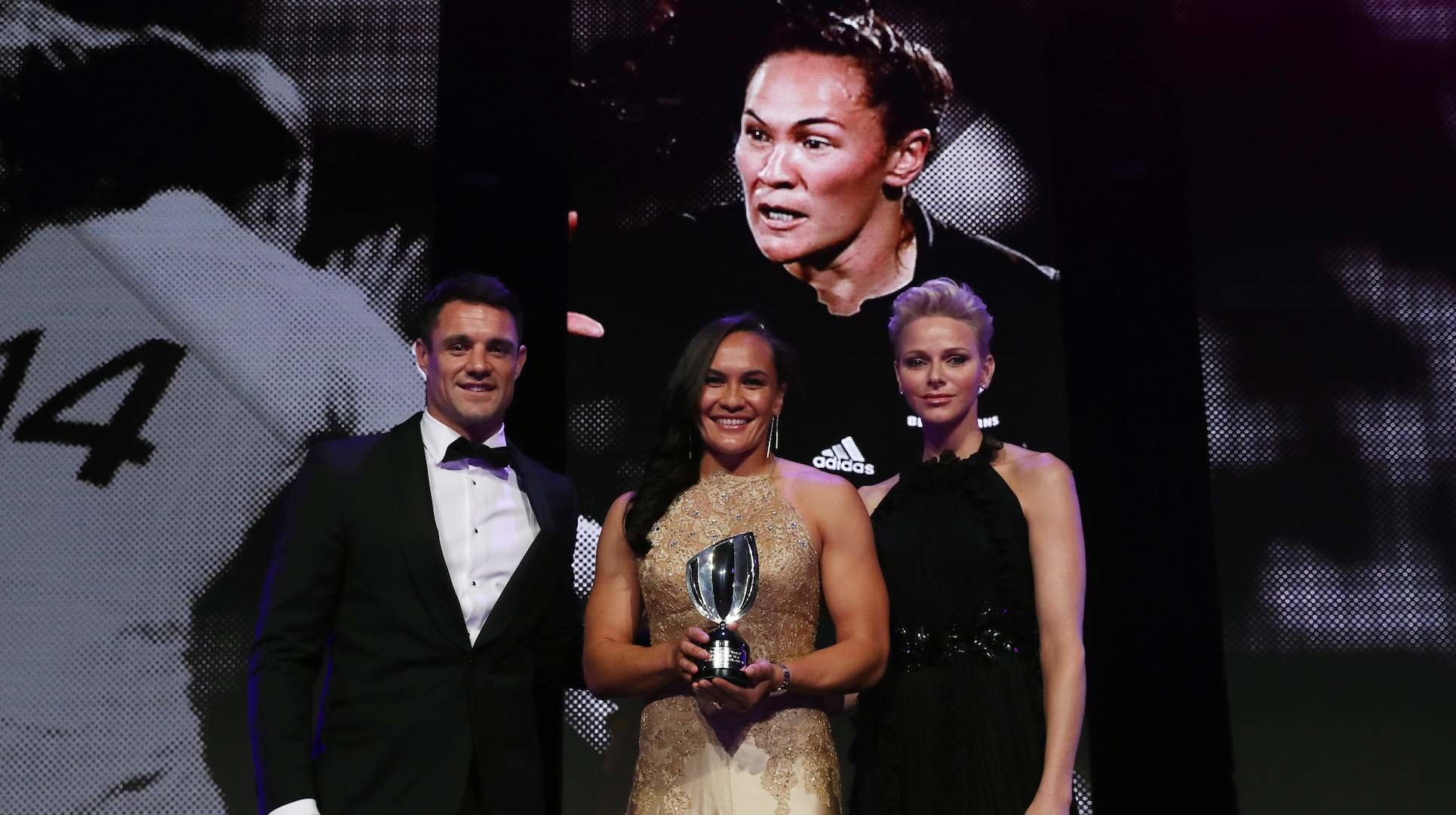Historic and deserved, the Black Ferns success at the World Rugby Awards is a wake-up call to global sport

Let’s just say it out loud for those in the back of the room: World Rugby, the body charged with running the game of Rugby Union around the globe, just handed its Team of the Year honour to the Black Ferns. The amateur New Zealand women’s team comprised of, among other things, students, teachers and police officers, who used the story of a white mouse to inspire a World Cup triumph.
Holy shit, there is a lot to get your head around there. So, let’s just start at the top and work our way through it. First up, this is the first time in history that a women’s team has won this award. For those who don’t think that’s much of a big deal, remember this: they weren’t crowned the Women’s Team of the Year; they are THE team of the year. In other words, a global sport that is predominated by men just asserted that women are not only their equal but are in this instance superior in terms of the merits of their performance.
REACTION: Portia Woodman, on how the @BlackFerns have helped to inspire the next generation of women's players #WorldRugbyAwards pic.twitter.com/vHyB063Yxu
— World Rugby (@WorldRugby) November 26, 2017
The assertion is accurate. The Black Ferns lost just once this season, against England on the same cold, wet June night the Maori All Blacks played the British and Irish Lions at Rotorua’s International Stadium. They avenged that loss with a dramatic 41-32 victory in the women’s world cup final in Belfast in August – a match watched by an estimated 2.65 million viewers on Britain’s ITV network – then came home and spent the next several months appearing at everything their work commitments allowed them to, inspiring the next generation to put on the boots.
During that World Cup tournament, the Black Ferns scored more than 20 per cent of the total number of tries, almost 20 per cent of the total number of points, maintained a life-long perfect record against England (the only team at this year’s event that boasted a full-time professional roster) in World Cup play and showcased the skills of the eventual women’s world player of the year – Portia Woodman, who scored the most tries, ran the most metres, made the most clean breaks and beat the most defenders.
To understand what drives the Black Ferns one must remember all that is good about the game (which is to put to one side the recent men’s World Cup hosting rights voting debacle) and everything that is wrong with it – and think about fundamentals: spirit, fair play, camaraderie, passion, pride, and the notion that the team is always bigger than the individual. The Black Ferns never once complained publicly about resources, allowances, pay parity, or the delicate balancing act of combining sport and work. They sure could have, but they did not.
Instead, they and their management team fostered a team-first ethos that was equal parts hard work – this correspondent had to watch the team warm up before the Canadian test in Wellington through his fingers, such was the intensity of the contact drills – and hard case, as anyone who has spent 30 seconds around Victoria Subritzky-Nafatali would attest to. They delighted in their place as the last of the amateurs, as they surely must now be considered.
The story of their inspiration says so much about their own sense of selflessness. It was none other than Nancy Wake, the New Zealand-born resistance heroine of the Second World War, in whom the Black Ferns found their touch stone. The same Nancy Wake who, at the tender age of 89, was quoted as saying “I’ve never been scared in my life.” The same Nancy Wake who once cycled 500 kilometres through German checkpoints to replace secret codes. The Black Ferns were rugby’s guerrilla fighters in the professional age, and now you know why they call the World Cup “Nancy”.
And the world now knows that rugby can claim to be a leader in world sport’s quest to ensure women are afforded the same respect as the boys when it comes to their performance. As CSM CEO Simon Porter wrote today for The Spinoff, this is the start – investment must follow respect and the returns will then be there for all.
For today though, we celebrate the Black Ferns and we celebrate this historic victory on rugby’s biggest night. It is win for this wonderful team, but it is also a win for women athletes in team sports the world over. It is a wake-up call to every other game that marketing dollars and merit are not the same thing.
It is probably fitting that the last word on this should go to the woman who inspired the Black Ferns campaign. Wake greatly lamented her portrayal in a 1987 mini-series about her life, but one of her many criticisms says it all. In a conversation about the programme she says,
“At one stage they had me cooking bacon and eggs to feed the men. For goodness sake, did the Allies parachute me into France to fry eggs and bacon for the men? There wasn’t an egg to be had for love nor money, and even if there had been, why would I be frying it?
“I had men to do that sort of thing.”


































































